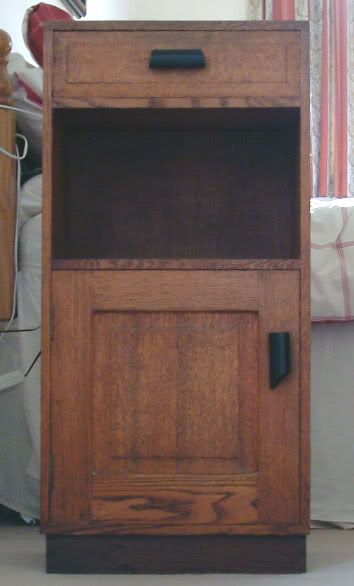mortic[s]e and tenon joints with ebony wedges. The front incorporates raised and fielded panels and ebony handles. The plinth is made of ammonia-fumed oak.

[/img]

At the end of nearly every single day for over 50 years my father has emptied the contents of his pockets onto the top and then swept them into the drawer.
NJS
